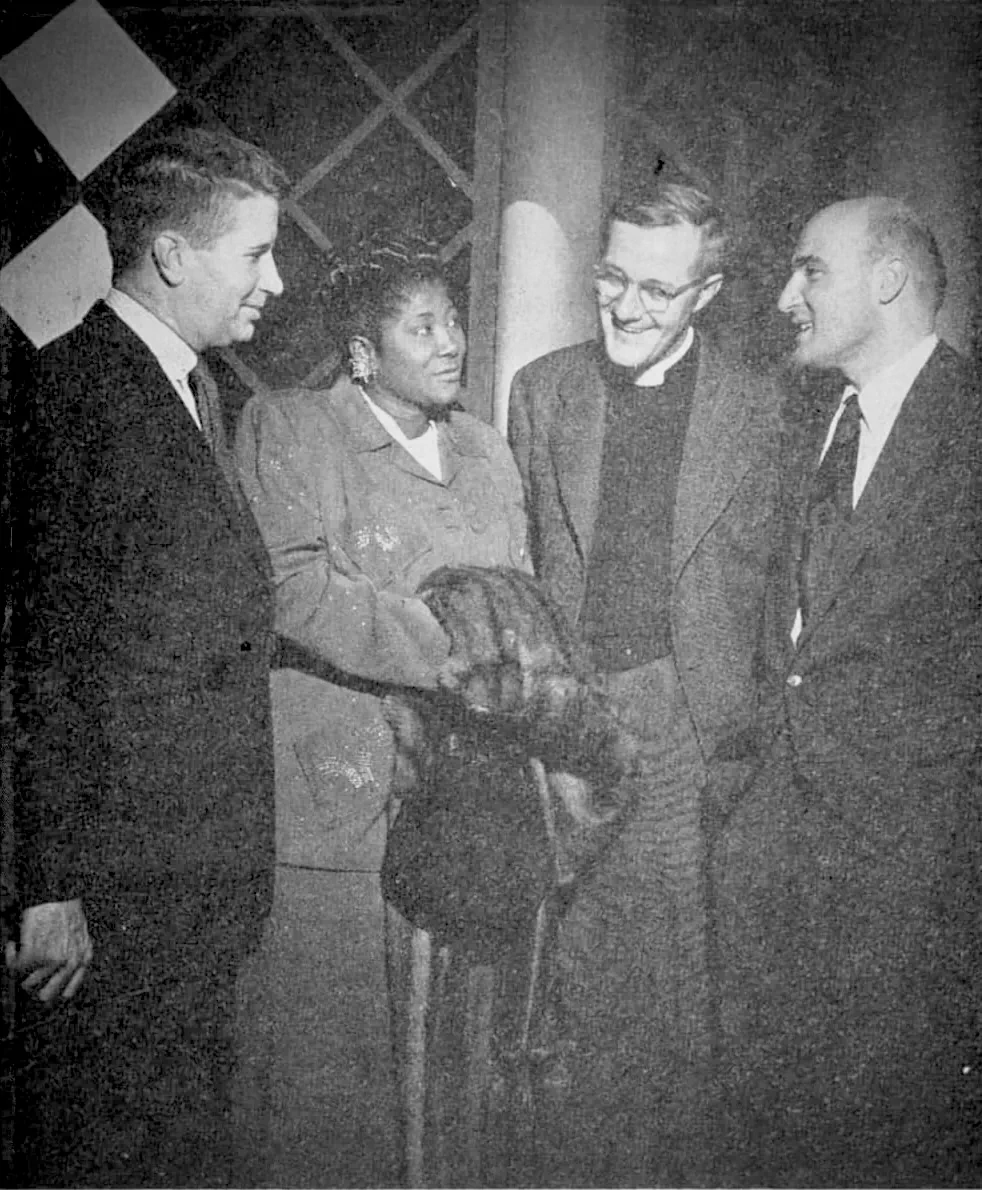A successful partnership
George Avakian (1919–2017) was an American record producer, artist manager, author, educator, and manager of Armenian descent.
Early career & “Chicago Jazz”
While studying at Yale University, Avakian convinced Decca Records to let him produce a 78 rpm record featuring Chicago jazz artists. Released in 1940, this record, titled Chicago Jazz, is considered the first jazz album in history, as it was a collection of recordings made specifically for joint release. It also included liner notes, another innovation.
Columbia Records
After serving in the US Army during World War II, Avakian joined Columbia Records in 1946. He was instrumental in the company's transition to the LP format.
Innovator of the LP
Avakian is credited with co-founding the 12-inch LP as an industry standard. He planned Columbia's first 100 10-inch pop LPs and was instrumental in the breakthrough of the 12-inch LP from classical to popular music.
Historical reissues
He organized Columbia's “Hot Jazz Classics” series, the first regular reissue series with detailed historical and contextual annotations. He curated collections of early jazz greats such as Louis Armstrong, Bessie Smith, Bix Beiderbecke, Duke Ellington, and Fletcher Henderson, often featuring previously unreleased recordings.
Avakian produced numerous important albums, including:
Erroll Garner's Concert by the Sea, Miles Davis' Miles Ahead, Benny Goodman's Live at Carnegie Hall, Louis Armstrong Plays W. C. Handy, live albums from the Newport Jazz Festival with Duke Ellington and others.
Artist management & production
In addition to Columbia, Avakian worked for World Pacific Records, Warner Bros. Records (where he signed The Everly Brothers and Bob Newhart) and RCA Victor (where he signed Sonny Rollins and Paul Desmond). He later worked as an independent producer and manager for artists such as Charles Lloyd and Keith Jarrett..
Founder of the Recording Academy
Avakian was one of the founders of the Recording Academy in 1958. He received numerous awards, including the Grammy Trustees Award and the NEA Jazz Masters Award. Avakian's work had a significant impact on the music industry, particularly the development and appreciation of jazz music.

© Fotograf unbekannt
From left to right:
Turk Murphy (trombonist), Mahalia Jackson, Rev. Alvin Kershaw (as a contestant on the show), and George Avakian.
Taken in 1955 during the $64,000 Question Show.
Thanks to Mr. Maurice Clark for bringing this to our attention.
The collaboration with Mahalia Jackson
Avakian was Mahalia's artist and repertoire executive at Columbia Records and played a crucial role in promoting her career in the 1950s.
Avakian recognized Mahalia's extraordinary talent when he first heard her sing in a church in San Francisco in 1944. He was impressed by her powerful voice and stage presence. Years later, while working at Columbia Records, he signed Mahalia to the label and produced some of her most successful albums. Avakian worked closely with Mahalia to bring her music to a wider audience. He understood both her roots in gospel music and her potential to appeal to a broader audience.
He took care to preserve the authenticity of their music, but also ensured high-quality arrangements and production standards that showcased her voice to its best advantage. The collaboration between Mahalia and Avakian was not always smooth. Mahalia was sometimes dissatisfied with the songs and arrangements Avakian chose. She preferred traditional gospel songs and was skeptical of attempts to modernize her sound. Avakian tried to take her concerns into account while ensuring that her music remained appealing to a wider audience.
Challenges
One example of the challenges in their collaboration was the production of the Christmas album Sweet Little Jesus Boy. Bill Russell, Mahalia's unofficial manager at the time, wrote to Avakian expressing Jackson's concern that she was being paid for arrangements even though she was singing traditional songs. Avakian replied that it appeared that neither Mahalia Jackson nor the licensors were entitled to royalties. Despite these challenges, the partnership between Mahalia and Avakian was extremely successful. Avakian produced some of Mahalia's best-known albums, including “The World's Greatest Gospel Singer” and “Bless This House.” These albums helped her reach an international audience.
George Avakian was proud to promote Mahalia's career and help her share her music with the world. He recognized the importance of her message and her talent and was committed to ensuring that she received the recognition she deserved. The relationship between Mahalia Jackson and George Avakian illustrates the complex dynamics between artist and producer. Despite creative differences and business challenges, they managed to build a successful partnership that elevated Mahalia's career to new heights and helped bring gospel music to a global audience.